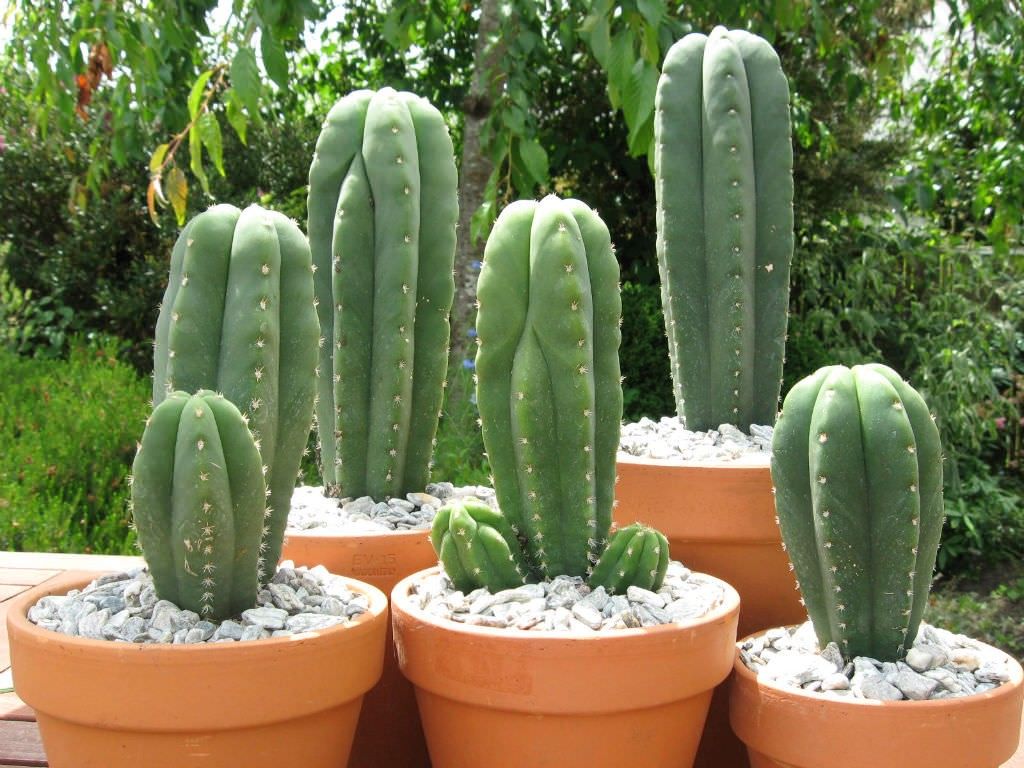
Mescaline could help fight addiction, depression, PTSD, and anxiety, one study suggests
Mescaline-containing San Pedro cactus (image via)
According to a new study published in the journal ACS Pharmacology & Translational Science, a single dose of mescaline can be a helpful treatment for people struggling with addiction, depression, anxiety, or PTSD.
Research into the healing powers of psychedelics is enjoying a renaissance as scientists discover that these federally banned compounds can treat mental illness more safely and effectively than traditional medicines. The lion’s share of this research has focused on psilocybin mushrooms, but the scientists also sparked interest in other natural entheogens such as ayahuasca and mescaline.
Mescaline is a psychoactive alkaloid that occurs naturally in the peyote and San Pedro cactus. Indigenous cultures have consumed peyote and San Pedro during spiritual and healing ceremonies for millennia, and in recent years non-indigenous people have also experimented with these natural medicines. But despite this long history of healing ceremonies and positive individual reports, there is relatively little clinical research examining the psychotherapeutic potential of mescaline.
To investigate the matter further, a team of researchers from California, Colorado, and the Netherlands recruited 452 adults who had consumed mescaline at least once. Using an online questionnaire, the researchers rated the subjects’ self-reported improvements in depression, anxiety, PTSD, and alcohol or drug use disorders immediately after their mescaline consumption.
About half of the subjects said they were suffering from depression or anxiety at the time they were taking mescaline. Although most of the subjects did not expect mescaline to help with these conditions, most of them found that their symptoms actually improved after the trip. Of the depressed subjects, 86 percent said their symptoms were reduced after taking mescaline, and 80 percent of those who suffered from anxiety reported similar improvements.
Between a third and a half of all participants said their mescaline experience was one of the five most spiritually or personally most significant experiences of their entire life. The researchers found that subjects who experienced ego-dissolution or psychological insights of a mystical nature were more likely to report significant improvements in their psychiatric states.
Indigenous tribes are legally allowed to grow and consume peyote for religious purposes, but the demand for mescaline by non-native psychonauts has been growing steadily since the 1960s. However, peyote cacti grow very slowly and the strong demand for psychedelic cactus buttons has depleted the natural supply of this desert plant.
Peyote is now considered an extremely endangered species, and although some cities have passed laws decriminalizing the use of natural psychedelics, most continue to ban peyote to respect its endangered status. There are also some companies currently making synthetic mescaline, but it is tightly controlled and generally only used for forensic analysis and criminal toxicology. As a result, it is very difficult to obtain mescaline for research purposes or personal use.
The present study is far from conclusive as it relies solely on self-reports and not on double-blind randomized trials, but strongly suggests that further investigation into the therapeutic effects of mescaline is warranted. “Additional research is needed to confirm these preliminary results and to rigorously examine the efficacy of mescaline for psychiatric treatment in controlled longitudinal clinical studies,” the study authors recommend.

Post a comment: